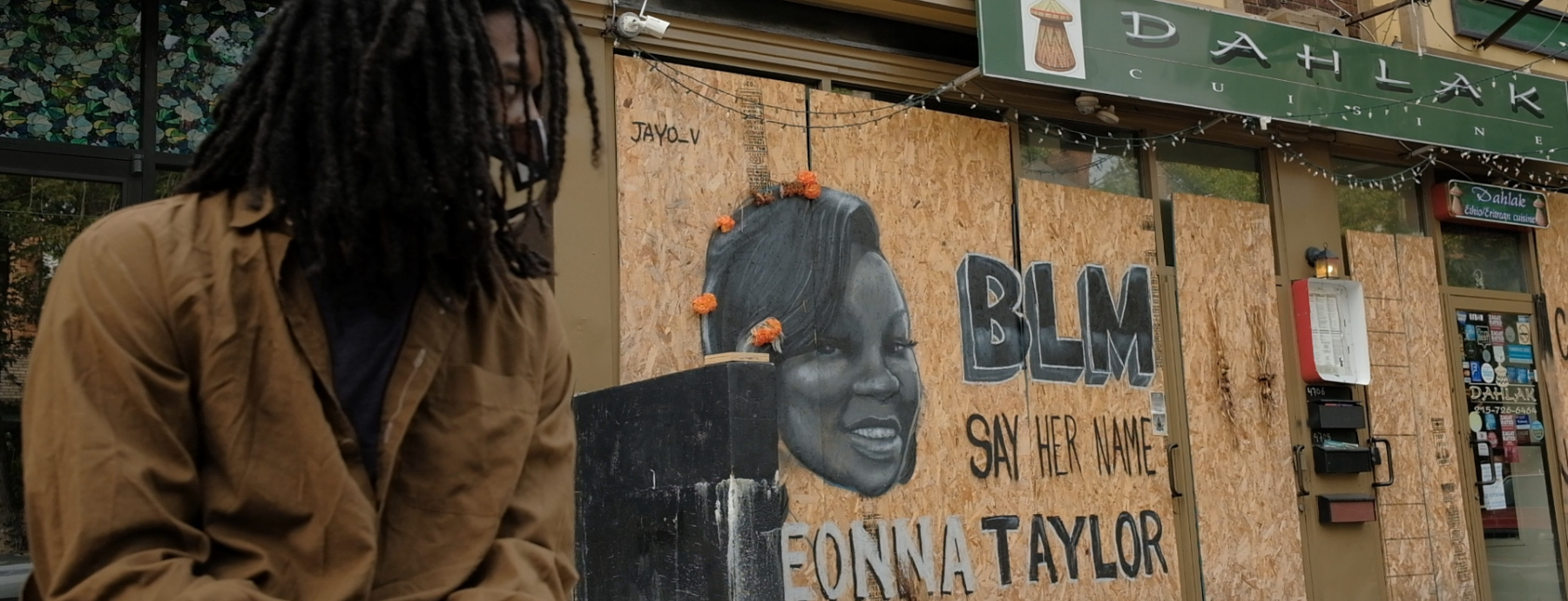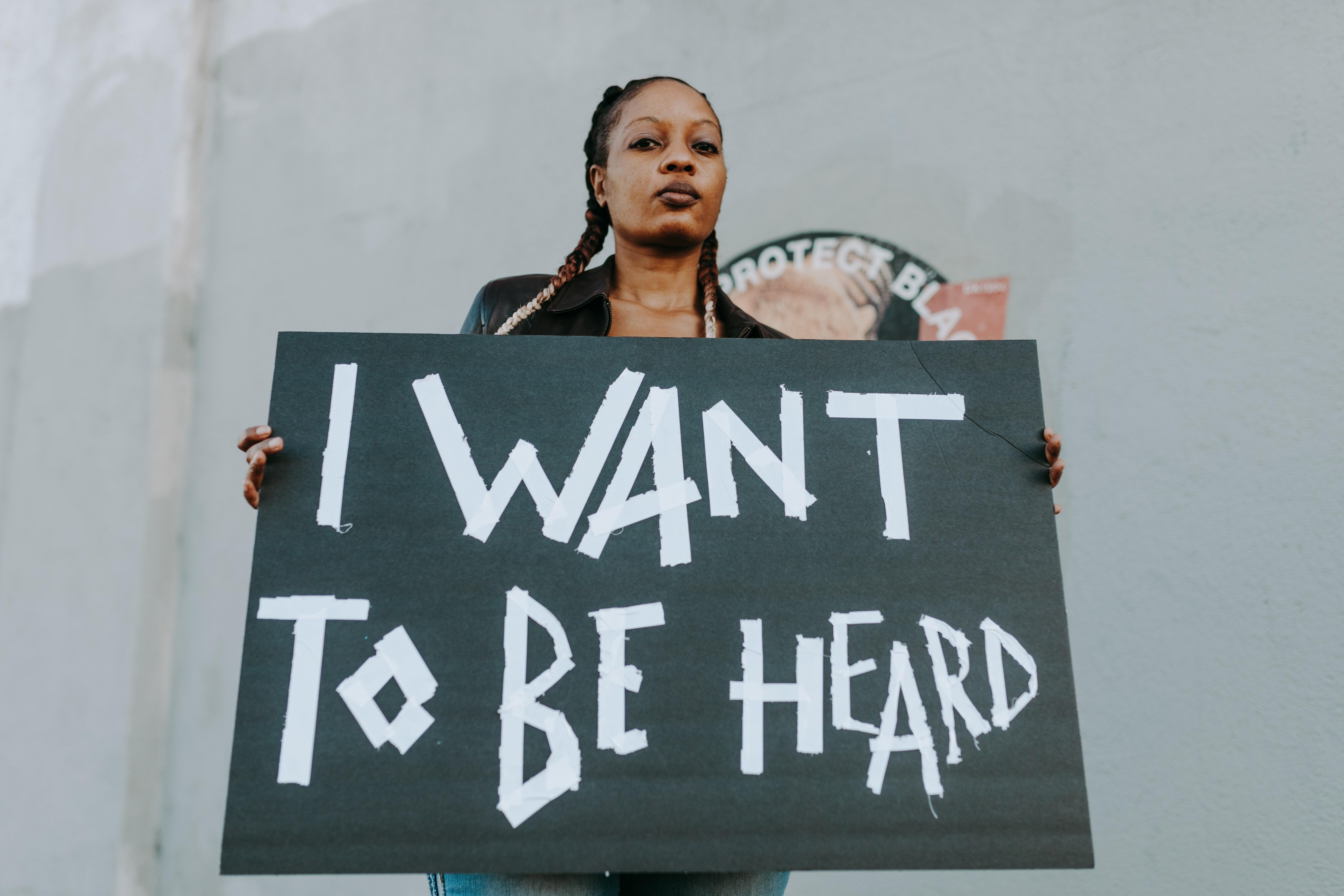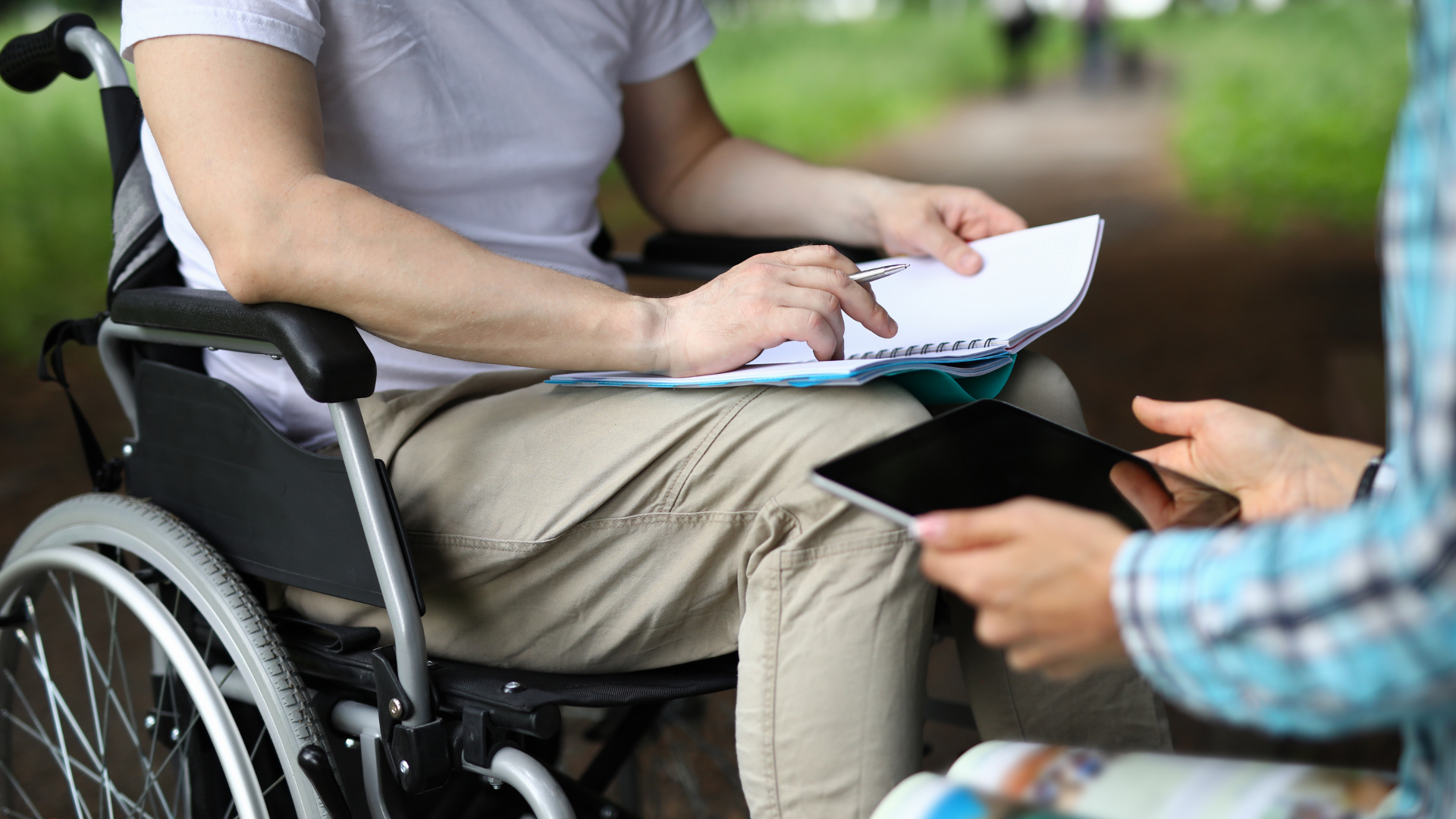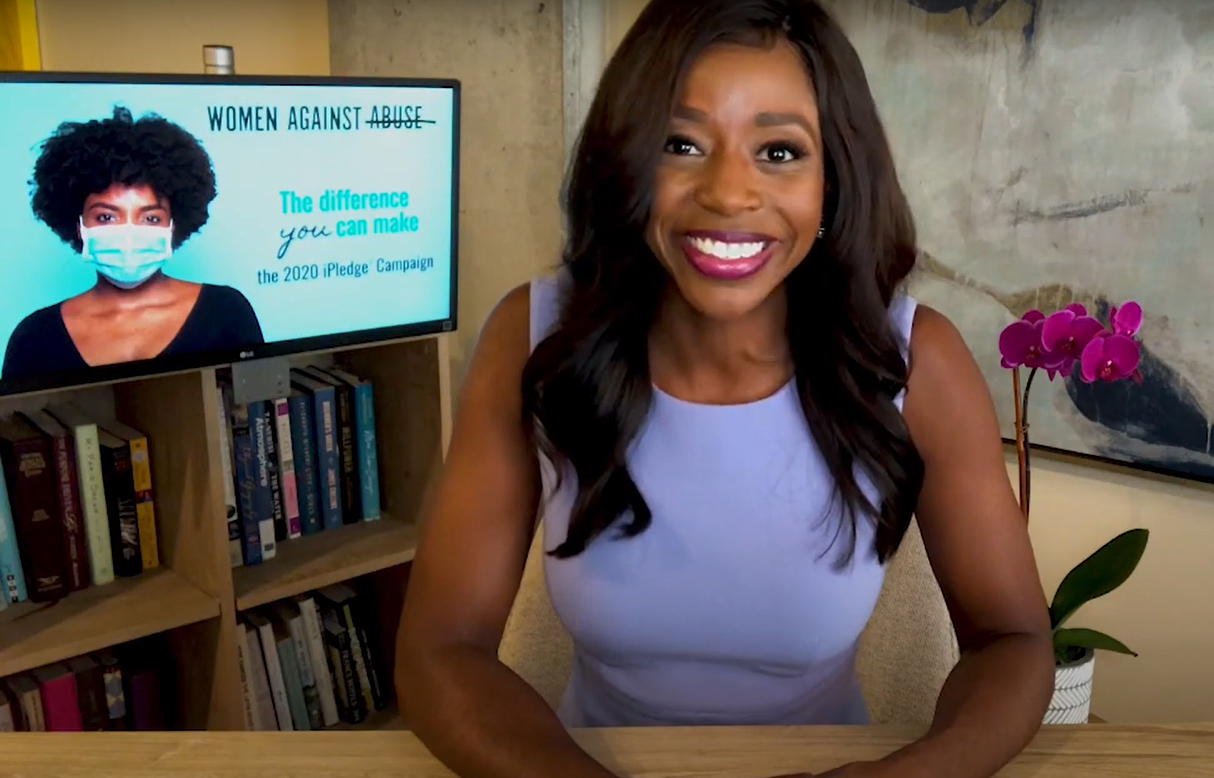Cut off from family members, friends and community supports. Prevented from attending work. Limited to one’s home... These aren’t only a list of COVID-19 safety measures. They’re a glimpse into life with an abusive partner.

Photo credit: Pat Ganley
But the restrictions don’t end there. For people experiencing relationship abuse, everything – from what they wear, to what they eat, to who they talk to – may be controlled by their partner.
Add to this oppressive environment, the very real fear of being beaten or even killed; a global pandemic that has resulted in widespread lay-offs and school closures; and the incessant violence, bias, microaggressions and injustices directed toward People of Color and especially Black and Brown Americans, and you’ll begin to imagine the trauma that many of our clients are currently navigating. And the standard safety plans that helped people survive in the past – like sending children to stay with extended family when the abuse became dangerous – may not be possible during COVID-19.
Instead, clients are walking on eggshells to avoid conflict. They’re being coerced into sex to keep other forms of abuse at bay – to “keep the peace” so to speak. They’re trying to avoid spending a lot of time in rooms with weapons, like the kitchen. They’re establishing code words with their children for when to call for help. They’re secretly creating “go” bags with their prescriptions and birth certificates in case they need to run.
It is against this grim backdrop that Women Against Abuse resolutely moved forward in its work in 2020. The past year has been about adapting to clients’ changing needs and creatively shifting the way we provide services and advocating for changes in the way systems support survivors to ensure people experiencing intimate partner violence can access the safety they need and deserve.
The resolve and heart of our team members has been inspiring, while the strength and resilience of our clients has been unimaginable.
Thank you for joining with us and helping to make this life-affirming work possible.
In solidarity,

Executive Director & President

Board Chair
A shelter in the storm during COVID-19
COVID-19 has been particularly concerning for people who are quarantined at home with an abusive partner, since isolation is a tactic that abusers use to control their victims. Necessary COVID-19 safety measures, like stay-at-home orders and social distancing, heighten isolation by removing relatives, neighbors and friends from the survivor’s support network. Additionally, economic stress – like that caused by widespread lay-offs and growing unemployment rates – often exacerbates abuse.
For these reasons, it was crucial that Women Against Abuse stayed on the frontlines, and we have continued to provide life-saving emergency safe haven, transitional housing, legal aid, and hotline counseling throughout the pandemic.

What we're hearing on the hotline
Fewer callers than normal are asking for shelter, opting for legal protections over congregate living. Those who are interested in shelter have questions about how we are keeping the sites safe, healthy and clean.
Some callers are asking about childcare, and must decide between missing work – and the income it provides – or allowing their abusive partner to watch the child(ren).
More callers than usual are sharing that their abusive partner is home when they are making the call; therefore, we’re experiencing more short, frantic calls, more hang-ups, and more abrupt endings.
More callers are sharing that they are being coerced into sex to keep other forms of abuse at bay – to “keep the peace” so to speak.
More callers are asking about how to “tell other family or friends about the abuse” in hopes that these loved ones will offer them a safe place to live, as opposed to using a congregate shelter setting during COVID-19.
What we're seeing on the ground
Calls to the Philadelphia Domestic Violence Hotline – a citywide point of access for crisis intervention, safety planning and resources for people experiencing relationship abuse – were down nearly 30% during the onset of COVID and Philadelphia’s stay at home order (March – June of 2020). This does not mean the need was any less. Between quarantining with abusive partners and supporting children learning at home, COVID has made it more difficult for people experiencing abuse to call the hotline.
We also experienced a decrease in new clients entering our emergency safe havens and utilizing legal services. This is logical and to be expected, particularly when you consider our residential occupancy had to be reduced to allow for proper safety precautions, and that the court buildings have been physically closed, so on-site interventions like our court advocacy and fast-track attorney programs are unable to reach clients like they used to. Legal Center telephone counseling hours kept pace with previous years, and we saw an uptick in new clients in the summer months.

Impact By the Numbers
Impact:
Impact:
Impact:
A closer look at our work during COVID-19
RESIDENTIAL SERVICES
- We instituted intensive disinfection protocols according to CDC guidelines, and our facilities are set-up in a way that is conducive to social distancing – emergency safe haven residents have private rooms, and transitional housing clients have their own apartment units.
- On-site staff have been limited to those providing essential services, such as security, housekeeping and dining services. Case managers, therapists, and others are providing client support services remotely.
- Our facilities team has adopted a comprehensive cleaning schedule to ensure that "high touch" areas and surfaces are disinfected regularly.
- We have replaced meal service in our safe haven dining rooms with Grab-and-Go bags, so that residents can eat in their own rooms.
- We are regularly taking temperatures of residents and staff, and are requiring facemasks to be worn in any public space.
LEGAL SERVICES
- Although the physical courthouse is closed, our attorneys successfully represented clients by video conference - assisting with temporary and emergency protection from abuse orders, as well as emergency custody.
- Our Legal Center team worked closely with the courts and the Emergency Filing Site to create in-person and remote access points for the public to be able to file for these crucial protections in a timely way, while taking COVID safety measures into account.
- We also advocated with city systems – including the police and District Attorney’s Office – to ensure services continued without disruption. We were even able to successfully advocate with the Sheriff’s Office to have them deliver petitions to defendants, so that our clients do not have to travel and be exposed to possible danger!
- Legal Center staff compiled their expertise into a Safety Planning Guide with tips for staying safe from an abusive partner during COVID-19 – a valuable resource that was shared by many partners, including the Pennsylvania Supreme Court!
PREVENTION
Our Prevention Department pivoted to provide training and workshops virtually during the pandemic, leveraging interactive platforms and ensuring participants were comfortable navigating the new tools. We also restructured the team to maximize impact, and now have a six-person team focused on community education, training and technical assistance.
innovative outreach
Domestic violence thrives in silence and isolation, so we want those in our community who are quarantined with an abusive partner to know that they do not have to be trapped – that there are options and services still available, even during the pandemic. See how we got the word out this year.
We conducted focus groups with survivors of intimate partner violence who are immigrants to develop marketing materials that would effectively break through the many barriers preventing this high-risk community from seeking legal aid.
Read more about what we learned.Did you see any of our ads over the past year? They appeared on Septa bus shelters, billboards, Philly.com, The Philadelphia Tribune, Al Dia, Chinese Metro Weekly, Philadelphia Gay News and other local media outlets!
We partnered with the Mural Arts Project and the City of Philadelphia Office of Domestic Violence Strategies (ODVS) to develop floor decals and posters with the hotline number in English and Spanish.
We worked with Ethnologica to produce a Public Service Announcement to let those quarantining with an abusive partner know they are not alone.
Check out our PSA here!We worked with the ODVS to design hotline flyers that were put into 32,000 meal kits distributed by the City to families in need.
Support Women Against Abuse
Women Against Abuse needs your support to continue to innovate quality, cost-effective services to victims of domestic violence and to provide leadership in the struggle to end domestic violence.
Become a Partner for Safety
JOIN OUR MONTHLY GIVING COMMUNITYMake a lasting impact through the 1976 Legacy Society
DISCOVER PLANNED GIVINGInvest in our future through a Donor Advised Fund
Learn moreWe offer our heartfelt thanks to the many people, companies, foundations and government entities that made our work possible. The generous support of our donors and local foundations has been more important than ever to see us through the pandemic and to offset cuts in federal funding for Sojourner House, our transitional housing program.
View our fiscal year 2020 donor listFinancial Highlights
Women Against Abuse is committed to the highest quality fiscal management, ensuring that all contributions are used with integrity, transparency and for the greatest impact for survivors of domestic violence.
| Current Assets | $7,647,937 |
|---|---|
| Cash and cash equivalents | $2,169,073 |
| Certificate of deposit | $150,000 |
| Contributions receivable | $2,387,225 |
| Prepaid expenses and other assets | $83,892 |
| Investments | $2,857,747 |
| Noncurrent Assets | $2,979,567 |
| Contributions receivable | $66,000 |
| Land, building, improvements, furniture and equipment, net of accumulated depreciation of $2,496,472 in 2019 | $2,913,567 |
| Total Assets | $10,627,504 |
| Current Liabilities | $2,120,549 |
|---|---|
| Accounts payable and accrued expenses | $1,446,713 |
| Notes payable | $665,778 |
| Client deposits | $8,058 |
| Notes Payable, net of current portion | $2,772,222 |
| Total Liabilities | $4,892,771 |
| Total Liabilities & Net Assets | $10,627,504 |
|---|---|
| Without Donor Restrictions | $4,670,841 |
| Operating | $1,450,149 |
| Board-designated | $3,220,692 |
| With Donor Restrictions | $1,063,892 |
| Total Net Assets | $5,734,733 |
| Governmental grants and contracts | $10,127,724 |
| Foundation awards | $559,464 |
| Contributions | $803,266 |
| In-kind contributions | $1,067,150 |
| Allocated investment income | $29,800 |
| Other | $45,400 |
| Total Revenue & Support | $12,632,804 |
| Program Services | $12,200,332 |
|---|---|
| Safe Havens | $7,670,111 |
| Legal | $2,995,092 |
| Sojourner House | $625,127 |
| Safe at Home | $420,180 |
| Policy and Prevention | $489,822 |
| Supporting Services | $1,084,608 |
| Management and general | $685,332 |
| Fundraising | $399,276 |
| Total Expenses | $13,284,940 |
| Change in net assets from operations | ($652,136) |
| Depreciation | ($366,498) |
| Net investment income | - |
| Change in Net Assets | ($1,018,634) |
|---|---|
| Net assets at beginning of year | $6,753,367 |
| Net assets at end of year | $5,734,733 |




